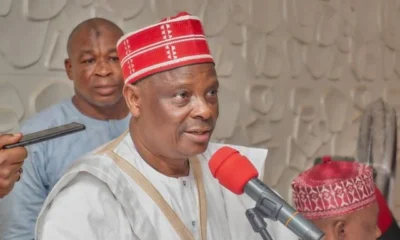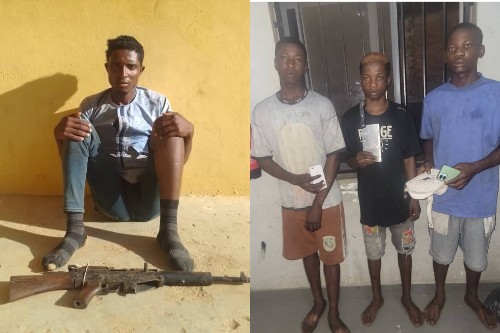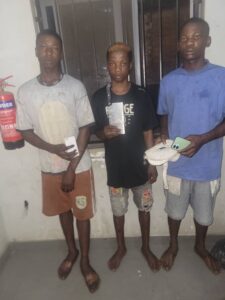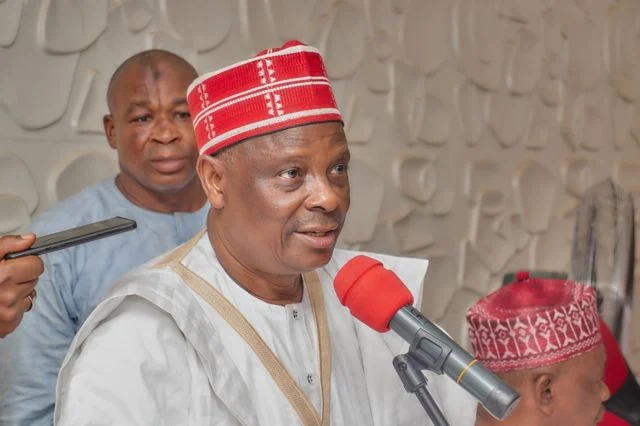Nigeria may increase its daily output of crude oil by 480,000 barrels as a result of a move towards a resolution between ExxonMobil and the Nigerian National Petroleum Company Limited about the latter’s asset transfer to Seplat Energy.
A settlement agreement between ExxonMobil firms in Nigeria and the NNPCL over the proposed sale of a 100% stake in Mobil Producing Nigeria Unlimited to Seplat Energy Offshore Limited was confirmed on Thursday.
This occurs just two days after President Bola Tinubu declared he would step in to stop the NNPCL and ExxonMobil fiasco that was impeding Seplat’s acquisition of the properties.
The Minister of States for Petroleum, Heineken Lokpobiri, said recently that Nigeria had lost about $30bn in the past two and a half years as a result of the unsuccessful divestment.
The minister expressed concerns that Nigeria was losing about 480,000 barrels of crude oil per day due to the Seplat/ExxonMobil crisis.
He said the asset was producing about 600,000bpd until the crisis began in 2022, saying the nation was losing millions of dollars daily.
Earlier report had it that ExxonMobil and Seplat Energy had in 2022 announced a $1.6bn sales agreement deal that would see Seplat purchase ExxonMobil’s complete shares in the NNPCL.
However, just when all hopes were high for the completion of the deal, a letter dated May 16, 2022, by the Nigerian Upstream Petroleum Regulatory Commission to ExxonMobil, stated that the deal could no longer hold because the NNPCL had exercised its right of pre-emption first refusal on the assets.
Right of pre-emption is a legal right to parties in a joint venture to be the first to be considered for any planned sale or takeover of assets in the JVs if either party chooses to trade them off.
According to reports, the NNPCL objected to the sale of ExxonMobil’s equity to Seplat and insisted on exercising its first refusal right after which the company reportedly made an offer above $1.6bn to ExxonMobil.
But after about two years of litigation, there seems to be an end in sight to the crisis.
According to the minister, the oil output from the asset dropped to 120,000bpd down from 600,000bpd since the disagreement began.
Lokpobiri said, “For the past two and a half years, oil has been hovering around $80 per barrel. 480,000bpd, multiply it by two and a half years, it will give you about $34bn. If one asset was doing about 600,000 barrels; but because of the problems which we are trying to resolve, production declined to 120,000 barrels, which means we’ve lost about 480,000bpd. Multiply it by $80, every day you get about $240m; multiply it by two and half years; we are talking of over $30bn. Inject that into our economy today, the dollar will naturally drop. This exchange rate is a matter of demand and supply”.
The intervention of the President appears to have yielded the desired results with the NNPCL announcing the signing of a settlement agreement.
The energy company said, “Settlement agreement between NNPC Ltd. and Mobil Producing Nigeria Unlimited, Mobil Development Nigeria Inc., and Mobil Exploration Nigeria Inc. signed regarding the proposed divestment of a 100 per cent interest in Mobil Producing Nigeria Unlimited to Seplat Energy Offshore Limited”.
It is believed that the resolution of the controversies surrounding the sale of the asset to Seplat would add about 480,000 barrels to Nigeria’s low oil production.
Alluding to this, Seplat’s Director of External Affairs and Social Performance, Chioma Afe, described the development as a good step.
Afe, in an interview on Thursday, noted that the energy firm was waiting for approvals to be finalised, especially with the regulators.
“What Exxon and NNPC announced is a step in the right direction and it is a positive outcome,” Age stated.
She said that the company did not have the details of the agreement as of Thursday, saying she would not be able to speak to its significance.
“What I can speak to is what we can take from that statement, which is that it is a good step. This was one hurdle. We needed NNPC and ExxonMobil to come to the table to sign an agreement that we agreed to the divestment. Which is excellent,” she explained.
Afe disclosed that other things need to take place, including the regulatory approvals and final government stamp, saying“We are waiting on that”.
Speaking on the impact of the resolution, Afe said it would serve to grow the overall business of Seplat.
On the nation’s economy, she said, “It will add to the number (of barrels) the country is seeking to be able to meet our OPEC number, that is more important; what it will contribute to the national number. It will contribute significantly to what the national output will be and that’s what we are very keen on”.
ExxonMobil has yet to reply to an inquiry sent by our correspondent as of press time.
The divestment deal between Seplat and ExxonMobil has been stalled for over two years.
Earlier report on July 12, 2022 had it that NNPC blocked ExxonMobil’s asset sale to Seplat.
The report stated that NNPC won a court decision temporarily blocking ExxonMobil Corporation from selling assets in Nigeria to Seplat Energy Plc.
A judge in Abuja had granted NNPC an “order of interim injunction” on July 6, 2022, barring Exxon “from completing any divestment” in a unit that ultimately operates four licenses in Nigeria.
The Lagos-based producer, Seplat, had agreed to acquire the United States oil major’s subsidiary for at least $1.28bn in February.
The report stated that NNPC wished to block the transaction and to take over the permits itself.
NNPC sued Mobil Producing Nigeria Unlimited on July 5, 2022, asking the Federal High Court either to order that a dispute had occurred between the parties over preemption rights or to order them to take the matter to arbitration.
Seplat, which was not party to the lawsuit, had said its deal with Exxon was “still valid” and the company “remains confident that the matter will be brought to a proper conclusion by the law.”
But with the announcement of NNPC on Thursday, the coast may be clear for the deal to be concluded.
The acquisition would give Seplat additional production of about 95,000 barrels of oil equivalent a day from shallow-water assets that Exxon operated in a joint venture with NNPC.
For more than a decade, international oil companies active in Nigeria have been offloading large parts of their portfolio across the country to domestic players, a trend that has recently accelerated.
Credit: The Punch

 BIG STORY4 days ago
BIG STORY4 days ago
 BIG STORY4 days ago
BIG STORY4 days ago
 BIG STORY4 days ago
BIG STORY4 days ago
 BIG STORY4 days ago
BIG STORY4 days ago
 BIG STORY1 day ago
BIG STORY1 day ago
 BIG STORY4 days ago
BIG STORY4 days ago
 BIG STORY5 days ago
BIG STORY5 days ago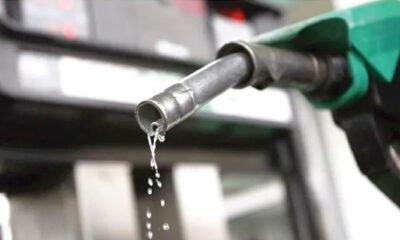
 BIG STORY5 days ago
BIG STORY5 days ago











